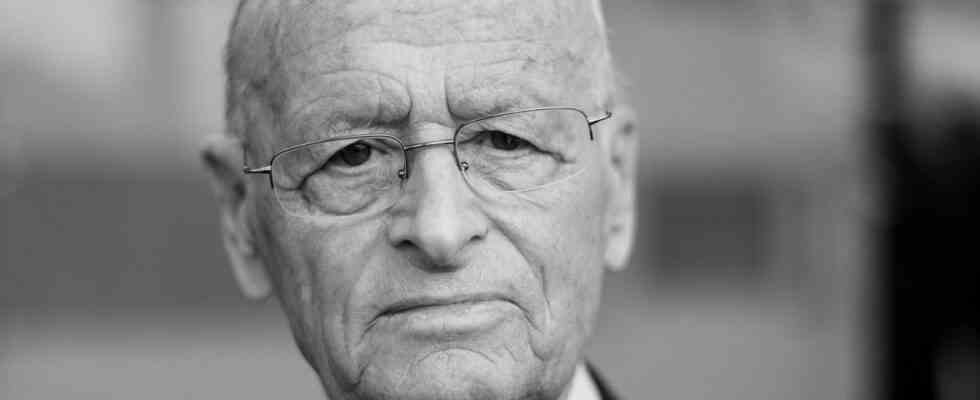You have your own fairly large museum at Volkswagen in Wolfsburg. Which is certainly appropriate given all these automobiles that have shaped the world. Porsches and Audis and Volkswagens can be admired.
There is a second VW museum in the Volkswagen city, an unofficial one that is far more exciting: Carl Hahn’s office. Born in 1926, he helped shape the company’s history for more than four decades, including eleven years as CEO from 1982 to 1993. When he was visited there not too long ago and asked why he needed several offices, including one from VW, as he retired seconded employee (who always had to write down the place and day until the end of the e-mails, like on a paper letter), Hahn first declared: “Work is healthy!”
And then this gentleman in a pinstripe suit and with a smartwatch on his wrist led us through the rooms, which are cluttered with his story, which is also the story of Volkswagen (and a trampoline on which he did exercises). On the wall advertising for the VW Beetle in English: “Think Small”. It was Hahn who made the Beetle and then the Bulli an icon in the 1960s as head of the USA at Volkswagen. A miniature Golf is there, Hahn is one of the fathers of the German car icon. On the ground, yes, Hahn made of sheet metal, made by apprentices in Spain: It was Carl Hahn who once bought Seat and thus (and with the purchase of Skoda) founded the “multi-brand strategy” at Volkswagen.
In dozens of photos: Carl Hahn in black and white with men who once ruled the world. Carl Hahn with Michael Gorbachev, Carl Hahn with Pope John Paul II. On the opposite wall is a glass display case exclusively with memorabilia from China. 40 percent of sales and maybe even more of profits come from this country these days.
A statue of Mao sits enthroned at the top of the cabinet
That also has something to do with Carl Hahn. The German gentleman maintained good contact with the Communist Party and in 1985 relocated the plant for the “Santana” sedan, which was unsuccessful in the West, to Shanghai. It was a resounding success. A statue of Mao sits enthroned at the top of the cabinet. The people in this country are role models for the whole world, in their striving for success, with their “outrageous diligence”, with their culture, with their energy, explained Hahn. It was also a bit of a role model for him: in recent years he has been working on the question of how Germans could improve early childhood education, a specific part of which is playful Chinese lessons.
And what about Wolfsburg? Hahn calls the city a “place that is nothing other than: Volkswagen”. Not enough for such a world traveler, so Carl Hahn helped finance an important art museum in the city. His office next door. In front of it is his vehicle, usually a small one, preferably one that drives electrically. Why are we only now coming up with electromobility? he asked in recent years. And he was glad that he was at least indirectly involved in this major turnaround in drive systems: the pioneering plant for e-mobility is now in Zwickau. The fact that VW is in Zwickau is also down to Hahn: he made contacts in Saxony during the GDR era and invested in this location after reunification. The fact that he comes from Saxony may have played a role. His father – one of his teachers – was a co-founder of Auto-Union, which later became Audi, the brand that Hahn junior formed into a premium manufacturer – also with the help of a certain Ferdinand Piëch, whom he made Audi boss and who was much better known would.
Hahn only faltered at one question
Exciting chapters, Hahn always had a lot to tell, even at the end of his time on the board, when VW was in the red due to low efficiency. He only hesitated on one question: Does the involvement of Auto-Union and Volkswagen with the Nazi regime actually result in a responsibility for the present? He looked surprised, couldn’t do much with the question. An attitude that always made conversations with him a bit heavier. On the other hand, it was Carl Hahn who, as VW boss, initiated the historical reappraisal in the 1980s, as one of the first company leaders in Germany.
On Saturday, this man, who fills a museum and who shaped German economic history, fell asleep peacefully at home, as a Volkswagen spokesman explained. He was a visionary, says Oliver Blume, who now heads Volkswagen.

